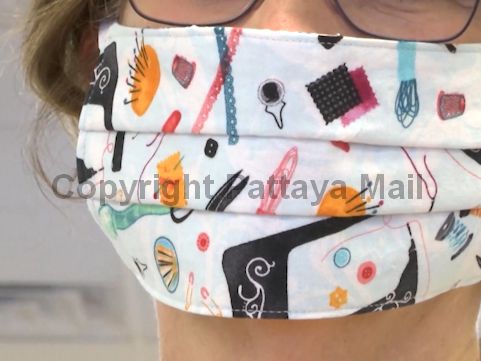
The third stage of the coronavirus crisis relaxation, beginning on June 1, reflects the truism that we are not yet sure where to head next. You can now have a haircut or your curly locks dyed, but a shave is out of the question. Massages are back on the agenda but not if they include head and shoulders or if they occur in a sauna. The beaches are open again but without umbrellas for half the week. In a country which is notoriously ambivalent about alcohol, sipping a cold beer with your restaurant meal could land you in hot water.
Ambiguity about what you can and can’t do is not good news for a holiday destination such as Pattaya. The local police have fallen over backwards being lenient to foreigners who have inadvertently broken the curfew or wandered into the water at the wrong time. After all, not everyone can read notices in English or Thai, and even those who can don’t invariably follow the news. But the minds of national and local decision takers are now concentrated on what will happen once mass tourism resumes, perhaps in the last quarter of 2020.
Much has been written about the new normal, the wish to return to the past but with new factors in mind. In fact, it is not a new expression and was first used by the ancient historian Orosius (normalis novum) as he speculated how the fifth-century Roman Empire could adjust to the barbarian hordes overrunning the frontiers. He was asking, as we do, how we can recapture the past whilst accommodating the present.
What is obvious in 2020 is that there’s going to be a big change in consumer expectation and behaviour. People are going to want to be reassured that they are safe before boarding an aircraft, stepping into a hotel, eating in a restaurant or visiting a tourist attraction. The coronavirus pandemic will change life for most folk. This includes limiting person-to-person contact such as handshakes and hugs. Even cash transactions will decline sharply as spenders look for more hygienic ways of buying goods and services. Glass and plastic screens are now permanent features and no longer novelties.
Face masks are not going to disappear anytime soon if only because they seem to suggest that those wearing them are behaving cautiously and with the welfare of others in mind, even if they are destined to join the fashion parade in fancy colours and designs. Infection control practices are not only a guard against Covid-19 but against influenza and all the other bad viruses out there.
The coming reality is that many Pattaya businesses will be anxious, prior to the resumption of foreign tourism, to kitemark their enterprise as an alleged guarantee of quality and safety. This happened on a much more limited scale a few years ago when many food outlets adopted the “clean food, good taste” campaign throughout the city. Commercial organizations such as Trip Advisor have also pioneered tourism kitemarks through their “centres of excellence” concept. Social media have massively encouraged customer feedback.
Now Thailand’s health and tourism authorities have teamed up with the admittedly verbose “Amazing Thailand Safety and Health Administration (SHA Project)” to certify via ongoing inspections that participating hotels, department stores, theatres, eating places and tourist attractions have significantly upgraded their hygiene and sanitation facilities to reduce the risk of infection. Already, almost 2,000 businesses nationwide have applied through the free registration process.
Cynics will say that the whole enterprise is a publicity stunt or just another piece of paper. But they have to address the question how a more circumspect and health-conscious tourist generation of the future will make its choices. Thai tourist minister Phiphat Rathchakitprakarn summed up, “Business owners know that certificates can be withdrawn if improvements are not maintained. But the tourists themselves will be the auditors as they send feedback about their experiences.”



